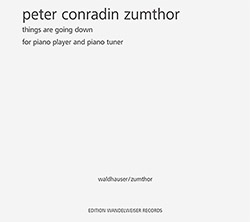
The title's play on words for Swiss percussionist Peter Conradin Zumthor's piano compositions is explained by his performance being effected by piano tuner Rene Waldhauser while playing, the piano being slowly detuned while Zumthor plays a series of aggressive key separations in a percussive manner, the modified tuning generating unexpected turbulence and harmonic overtones.
Out of Stock
Quantity in Basket: None
Log In to use our Wish List
Shipping Weight: 3.00 units
Sample The Album:
Peter Conradin Zumthor-piano player, composer
Rene Waldhauser-piano tuner
Click an artist name above to see in-stock items for that artist.
UPC: 4011778039549
Label: Edition Wandelweiser Records
Catalog ID: EWR 2119
Squidco Product Code: 31527
Format: CD
Condition: New
Released: 2021
Country: Germany
Packaging: Cardboard Gatefold 3 Panels
Recorded at Klavierwekstatt Wasldhauser, in Liestal, Switzerland, on February 28th, 2021, by Thomas Gassmann.
"The first thought while listening: Prokofiev! Yes, of course - it sounds like the russian composer's toccata op. 11, which premie- red 1916 in st. Petersburg. Both pieces feature rapidly repeated octaves, evenly alternating between the great and small octave on the piano. The one note again and again - in this case the b♭ - requiring relentlessly vigourous attack. Futurist music apparently, the piano as machine. Seconds pass, then minutes. But the b♭ remains. For the first four minutes at least, just two octave doublings are added and that's it - or is it? Barely has our impatience abated when perception encounters new horizons: A great throbbing, drumming and roaring emerges round the instrument. The repetitive sounds quake, a cloud of oscillating, singing overtones begins to swell. A steady seesawing between the fifth and the third of the tonic emerges out of its spectrum.
While percussionist peter conradin Zumthor plays his rapid repeats unfazed for 46 minutes - a total of only five b♭ keys at different places on the keyboard - rené Waldhauser slowly starts loosening the strings with his tuning hammer. They are using a czech petrof of the 1930s, and the high notes on it are produced with three strings struck simultaneously. However, since the hammers for the two lower notes strike only one or two strings, every modification in the tension of the strings leads to vertiginous interference between the sound spectra of the lowered strings and those that are still at normal pitch.
The layering and acoustic turbulence that will result is near impossible to predict. It takes Zumthor and Waldhauser 38 minutes for the strings to sag completely until they are left lying slack on the bottom of the piano. From minute to minute, the relationship changes between the tonic and its overtones, between the portion of percussive, roaring, rustling, shattering and finally crackling sound. The more relaxed the strings become, the softer the sound. Not until approximately the last five minutes does Waldhauser begin tightening the strings again almost to their original tautness. Thus, the closing section not only shows a reversal of the downward drift but also a considerable acceleration of events. Zumthor and Waldhauser wear glasses to protect themselves from strings that might snap or come whipping up out of the piano.
The idea of a piano player and a piano tuner making music together is not all that far-fetched, but it apparently takes a percussionist to delve more deeply into the magical realm of the spectral. Zumthor loves the piano. According to the artist from haldenstein, switzerland, four fifths of his listening repertoire are devoted to piano music. His idol at the keyboard, sviatoslav richter, the legendary russian who died in 1997, "risked so much" and always "preferred to play a wrong note right rather than a right note wrong". However, Zumthor, who never studied piano, takes an entirely different tack, exploring diverse facets of the piano, for instance, in musical shorts that he has filmed, such as gartenklavier (2016), muldenklavier (2019) and die letzte stimmung (2021).
The piano may be a mighty generator of sound, treated like a melodious percussion instrument. Or a lovable, almost nostalgic piece of furniture, now past its prime as an ageing symbol of once so popular bourgeois house music. And of course, a grand piano of the kind that gives any salon the social prestige of a proper concert experience. While in orchestral literature from haydn to varèse to dutilleux, the tuning-up of instruments has often inspired exotic, humorous effects, the tuning of a piano has hardly ever been musically exploited. The 88 keys come into play only after the indispensable specialist has done his job. At the very most, during a concert interval, one might overhear the protracted and relatively uninteresting sound of a tuner regulating microtonal subtleties by adjusting the tension of the strings. Nowadays, a piano is properly tuned only if the beats have been banished - viz. Pythagorean comma - and all 'impurities' eliminated.
But these phenomena that lie in what might be called the shadow of musical perception are precisely what motivate Zumthor to draw them to our attention with his arte povera of sound. The two friends began experimenting with the old instruments stashed away in the cellar of Waldhauser's piano workshop. In the course of their experiments, they discovered that octaves played in quick succession are the best way to make the gradual modifications in sound audible.
But how does the coordination between piano player and piano tuner work in a live situation? "we follow the trail together on the basis of my sketches," Zumthor explains. "we know more or less when it's time for the lower or higher registers. The change depends on my state of mind. I need to stop playing octaves periodically to give my ligaments and muscles a rest. At the same time, by putting the tuning hammer on a specific pin, rené can show me which key he wants to change next." the tendency seems obvious: Things are going down - downstream. The proud concert instrument of the dazzling soloist has become an anonymous, mechanical device that gradually morphs into a slowly suffocating creature. Soon the hammers no longer produce a brilliant prokofiev, nor a melancholy rattling, only a soft crackling and rustling. While the tuner turns the pins, the strain on the piano player and his instrument steadily grows. Enormous, unremitting energy is required. Then, finally, things start going up again. Maybe the end is still open after all - who knows?"-Anselm Cybinski, Translation By Catherine Schelbert
Artist Biographies
• Show Bio for Peter Conradin Zumthor "Zumthor, whose father is the architect Peter Zumthor , broke a violin training in the kindergarten age. Through his father he was early familiar with Jazzmusik ; Only through hip-hop did he return to active music making and learned to play drums, largely as an autodidact . At the age of 19 he played in the (last) trio of Werner Lüdi . With his projects, he is present on national and international stages; For example in the duo with the pianist Vera Kappeler , as a soloist, or with the drummer theater "Die Hintertür" with Fritz Hauser and Rob Kloet . With Dominik Blum at the Hammondorgel he plays in the duo Azeotrope. Concert tours took him to over a dozen countries. Zumthor also works at the interfaces of music and visual art. He began to make the preparations for the church bells, which were altered in sound, for both music and art festivals. Zumthor initiated numerous projects and formations. He was involved in world premieres of New Music , gave solo concerts, played theatermusics and composed architectural music and composed music. He worked with the composers Felix Profos and David Dramm as well as with the musicians Christian Weber , Anna Trauffer, Fritz Hauser, Achim Escher and Marek Otwinowski, Jürg Kienberger, Julian Sartorius and with the Ukrainian writer Yuri Andruchovych ( Werewolf Sutra ). With Samuel Streiff, he worked on the battles (2014). In 2009, he received a work grant from the Canton of Graubünden to prepare his solo program. In 2015, the Duo Kappeler / Zumthor received the recognition prize of the city of Chur." ^ Hide Bio for Peter Conradin Zumthor
1/22/2026
Have a better biography or biography source? Please Contact Us so that we can update this biography.
Track Listing:
1. Things Are Going Down 46:03
Compositional Forms
Piano & Keyboards
Duo Recordings
European Improvisation, Composition and Experimental Forms
Staff Picks & Recommended Items
New in Compositional Music
Search for other titles on the label:
Edition Wandelweiser Records.


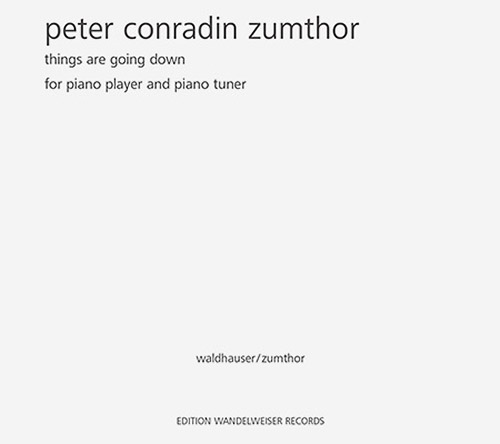
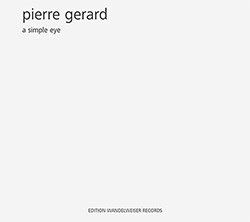
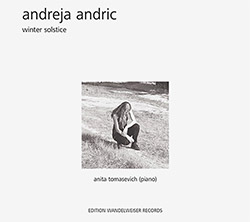
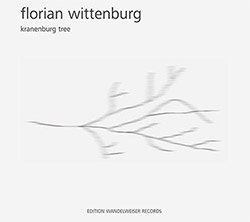
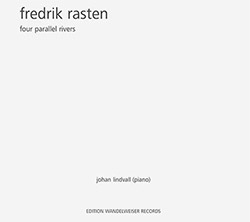
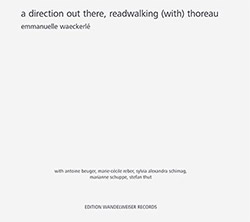
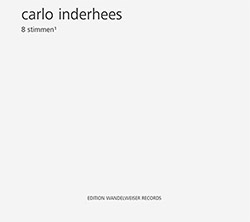
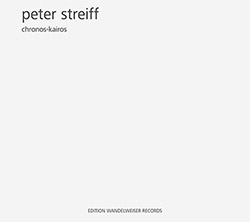
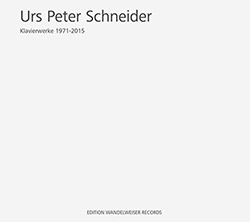
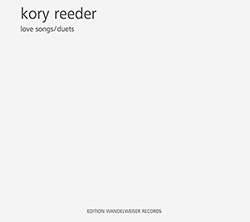

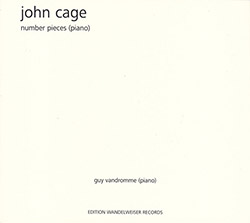

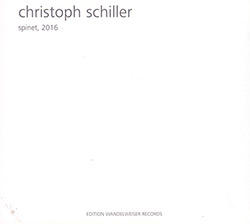

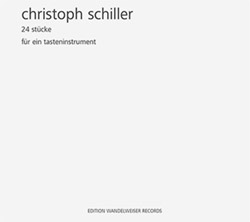
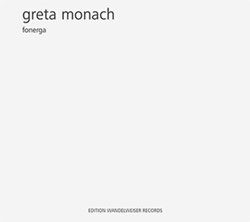






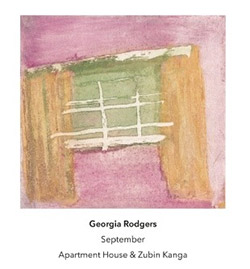







![Davies, Angharad / Burkhard Beins : Meshes Of The Evening [VINYL]](https://www.teuthida.com/productImages/misc4/36990.jpg)
![Bussmann, Nicholas / Sven-Ake Johansson / Yan Jun: Tea Time [Vinyl]](https://www.teuthida.com/productImages/misc4/36991.jpg)
![Feldman, Morton / GBSR Duo w/ Taylor MacLennan: Trios [6 CD BOX SET]](https://www.teuthida.com/productImages/misc4/37020.jpg)
![Williams, Jessica: Blue Abstraction: Prepared Piano Project 1985-1987 [VINYL]](https://www.teuthida.com/productImages/misc4/37080.jpg)
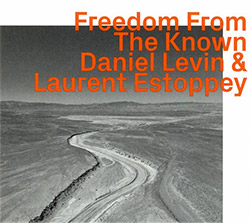
![Fagaschinski, Kai: Aerodynamics [VINYL 2 LPs]](https://www.teuthida.com/productImages/misc4/36992.jpg)
![Allbee, Liz: Breath Vessels [VINYL]](https://www.teuthida.com/productImages/misc4/37012.jpg)
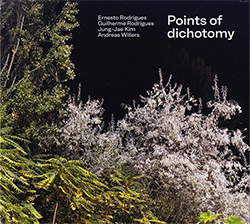
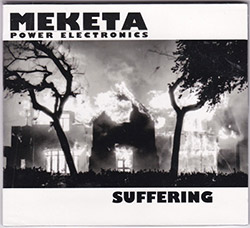


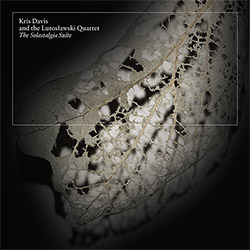
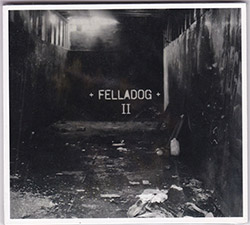






![Parker, Evan / Andrea Centazzo: Bullfighting On Ice! Live In Padova 1977 [VINYL]](https://www.teuthida.com/productImages/misc4/37064.jpg)
![Curran, Alvin / Andrea Centazzo / Evan Parker: Real Time [VINYL]](https://www.teuthida.com/productImages/misc4/37065.jpg)
![Curran, Alvin / Andrea Centazzo / Evan Parker: Real Time Two [VINYL]](https://www.teuthida.com/productImages/misc4/37066.jpg)

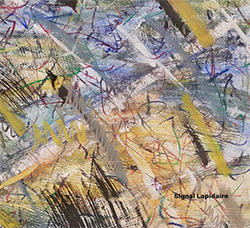

![Rodrigues, Ernesto / Jung-Jae Kim / Guilherme Rodrigues / Eric Bauer / Stephen Flinn: 5 In The Afternoon [2CDs]](https://www.teuthida.com/productImages/misc4/36957.jpg)


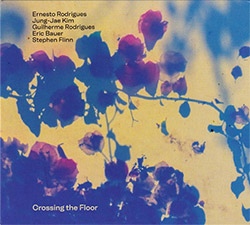





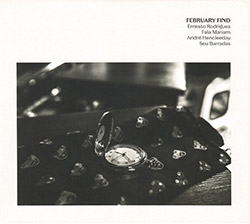
![Evans, Peter / Being & Becoming: Ars Ludricra [VINYL + DOWNLOAD]](https://www.teuthida.com/productImages/misc4/37026.jpg)

![Coley, Byron / Mats Gustafsson / Thurston Moore: Now Jazz Now: 100 Essential Free Jazz & Improvisation Recordings (1960-80) [BOOK]](https://www.teuthida.com/productImages/misc4/36932.jpg)

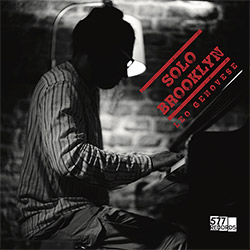
![HobbyHouse (Mia Dyberg / Axel Filip): HobbyHouse [CD + DOWNLOAD]](https://www.teuthida.com/productImages/misc4/36944.jpg)
![Mines, Kelsey / Erin Rogers: Scratching At The Surface [CD + DOWNLOAD]](https://www.teuthida.com/productImages/misc4/36945.jpg)
![Nebbia, Camila (feat/ Marilyn Crispell / Lesley Mok): A Reflection Distorts Over Water [CD + DOWNLOAD]](https://www.teuthida.com/productImages/misc4/36946.jpg)
![Vanheerentals, Adia: Taking Place [CD + DOWNLOAD]](https://www.teuthida.com/productImages/misc4/36947.jpg)

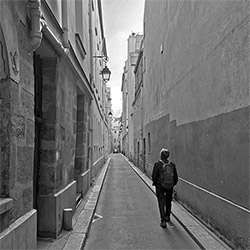
![Belorukov, Ilia / Alex Riva: Wrestling For Futility [CASSETTE w/DOWNLOAD]](https://www.teuthida.com/productImages/misc4/36994.jpg)


![Genthon, Anouck / Lionel Marchetti: Suite Blanche [2 CDs]](https://www.teuthida.com/productImages/misc4/36642.jpg)
![Toeplitz, Kasper T.: Erosions Programmees [CD + BOOKLET]](https://www.teuthida.com/productImages/misc4/36639.jpg)
![Gate, The : Almost Live [CASSETTE + MAGAZINE]](https://www.teuthida.com/productImages/misc4/36836.jpg)






![A Magic Whistle: The Solar Cell [VINYL]](https://www.teuthida.com/productImages/misc4/36658.jpg)

![McGee, Hal: Columbus Expedition [Cassette w/ Download]](https://www.teuthida.com/productImages/misc4/36650.jpg)


![Jaeger, Kassel: Fernweh [VINYL 2 LPs]](https://www.teuthida.com/productImages/misc4/36541.jpg)





![Frey, Jurg : Composer, Alone [3 CDs]](https://www.teuthida.com/productImages/misc4/36927.jpg)








![Frey, Jurg with ensemble]h[iatus: Je Laisse A La Nuit Son Poids D](https://www.teuthida.com/productImages/misc4/36988.jpg)




![Pisaro-Liu, Michael: Within (2) / Appearance (2) [2 CDs]](https://www.teuthida.com/productImages/misc4/36831.jpg)










![Musicworks Magazine: #151 Summer 25 [MAGAZINE + CD]](https://www.teuthida.com/productImages/misc4/36559.jpg)

![Brown, Dan / Dan Reynolds: Live At The Grange Hall [unauthorized][CASSETTE]](https://www.teuthida.com/productImages/misc4/36245.jpg)

![Zorn, John: The Song of Songs [CD + CD BOOK]](https://www.teuthida.com/productImages/misc4/36923.jpg)

![Coultrain: Mundus [COLORED VINYL]](https://www.teuthida.com/productImages/misc4/33056.jpg)
![Hprizm: Signs Remixed [COLORED VINYL]](https://www.teuthida.com/productImages/misc4/30635.jpg)
![Halls Of the Machine: All Tribal Dignitaries [CASSETTE w/ DOWNLOAD]](https://www.teuthida.com/productImages/misc4/36134.jpg)



![Koenjihyakkei: Live at Club Goodman [2 CDs]](https://www.teuthida.com/productImages/misc4/36111.jpg)

![Sorry For Laughing (G. Whitlow / M. Bates / Dave-Id / E. Ka-Spel): Rain Flowers [2 CDS]](https://www.teuthida.com/productImages/misc4/35985.jpg)

![Rolando, Tommaso / Andy Moor : Biscotti [CASSETTE w/ DOWNLOADS]](https://www.teuthida.com/productImages/misc4/36106.jpg)


![Electric Bird Noise / Derek Roddy: 8-10-22 [CD EP]](https://www.teuthida.com/productImages/misc4/35970.jpg)








![Elephant9 : Mythical River [VINYL]](https://www.teuthida.com/productImages/misc4/34624.jpg)



![Elephant9 with Terje Rypdal: Catching Fire [VINYL 2 LPs]](https://www.teuthida.com/productImages/misc4/35355.jpg)
![Coley, Byron: Dating Tips for Touring Bands [VINYL]](https://www.teuthida.com/productImages/misc4/17906.jpg)

![Lost Kisses: My Life is Sad & Funny [DVD]](https://www.teuthida.com/productImages/misc4/lostKissesDVD.jpg)